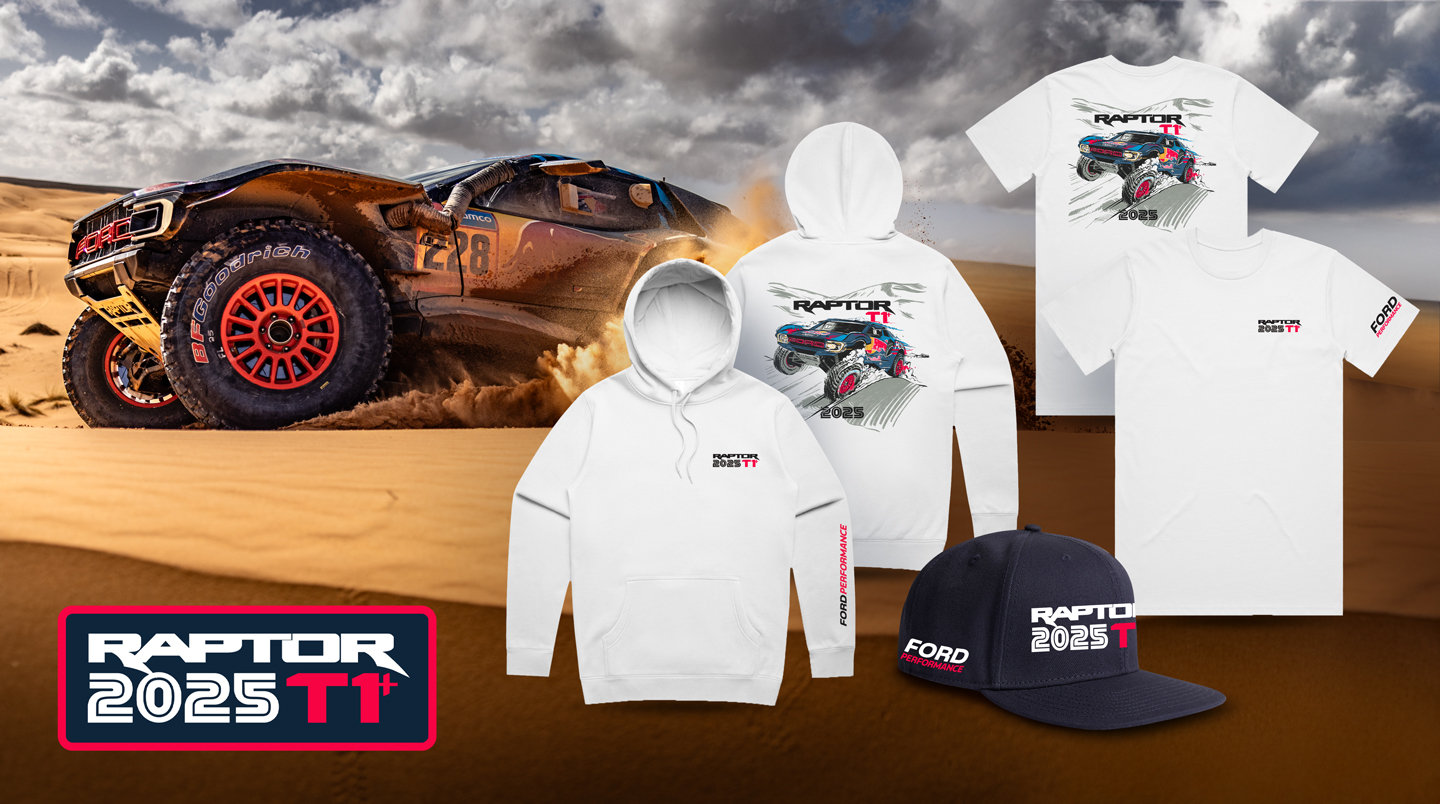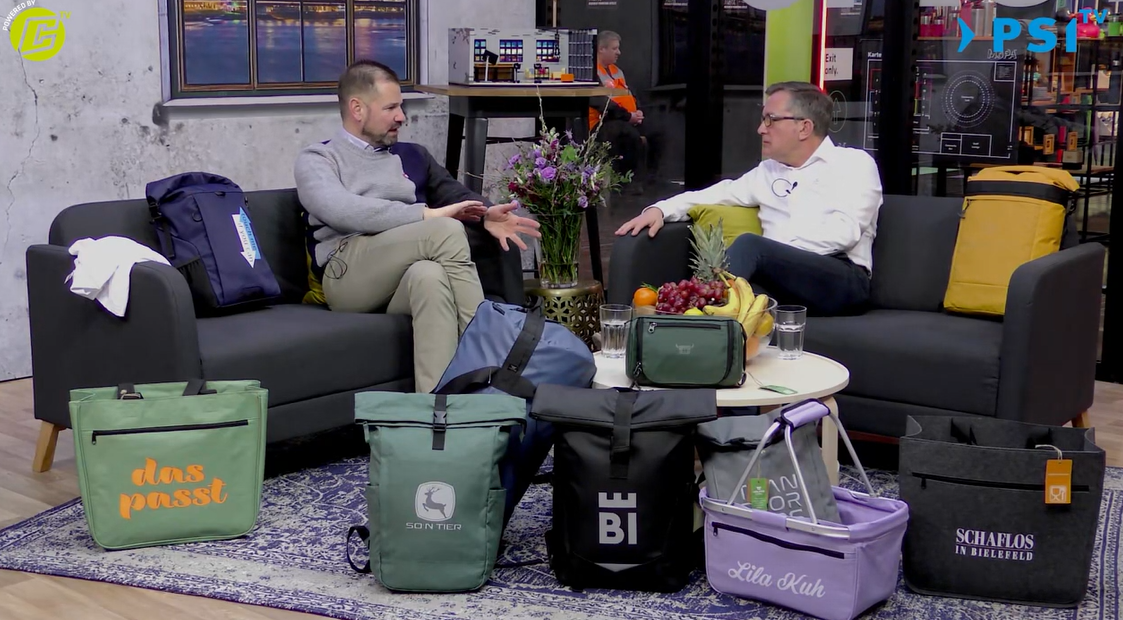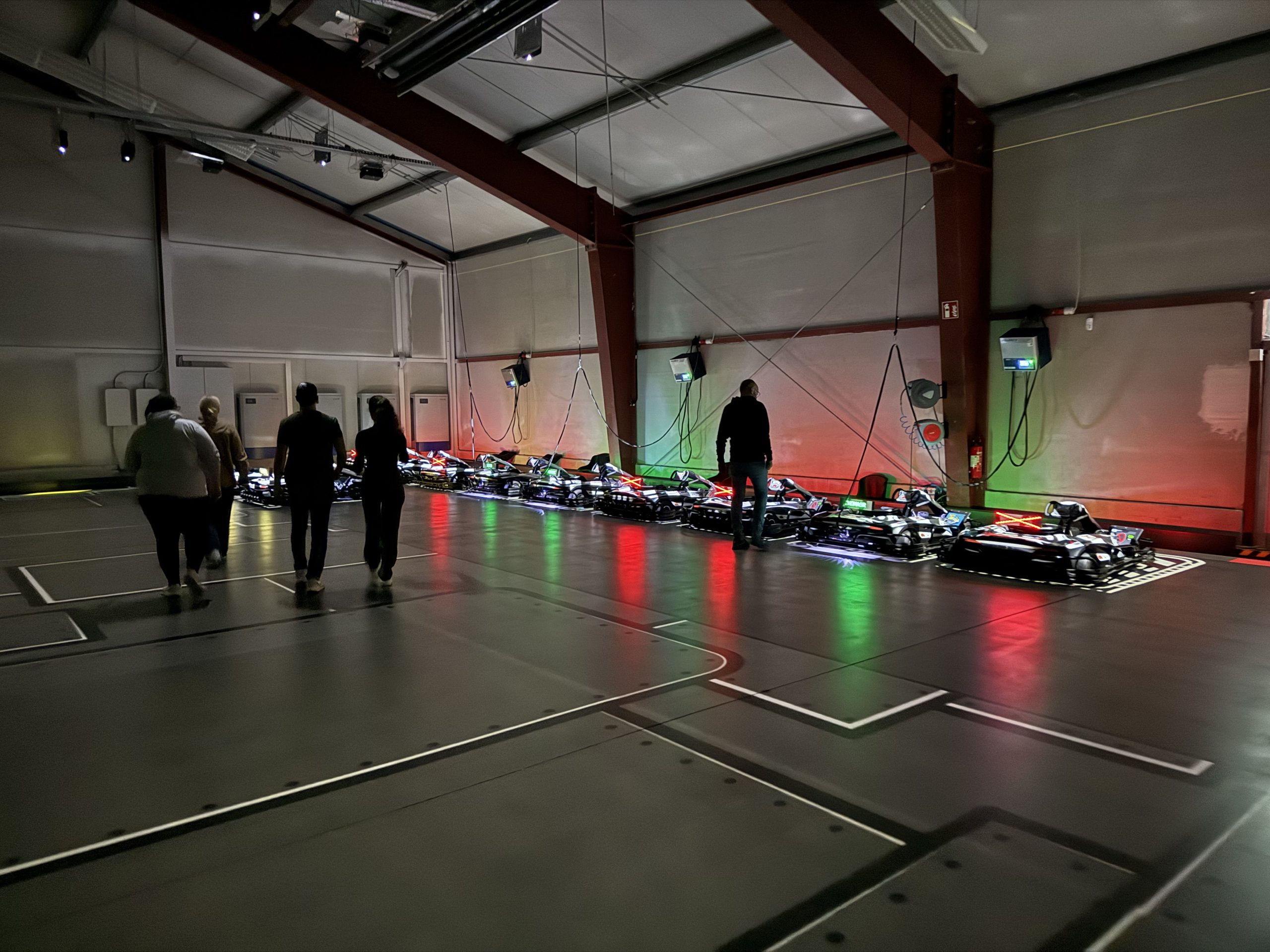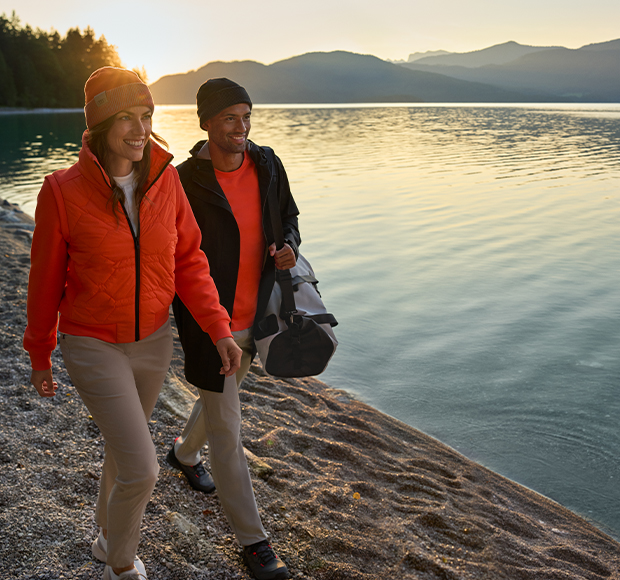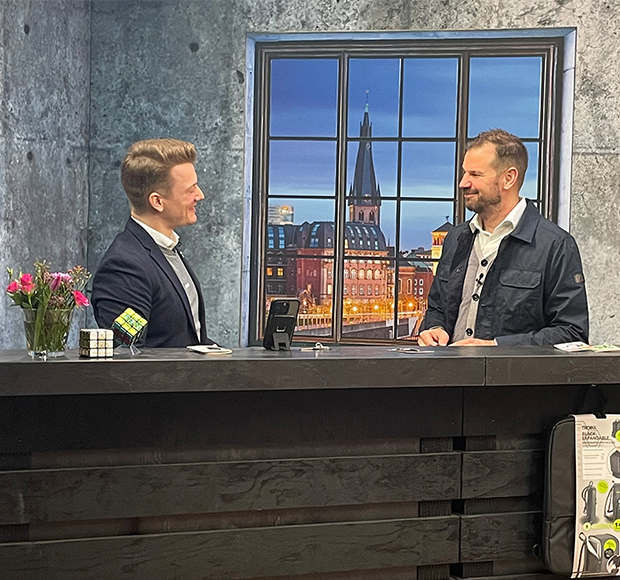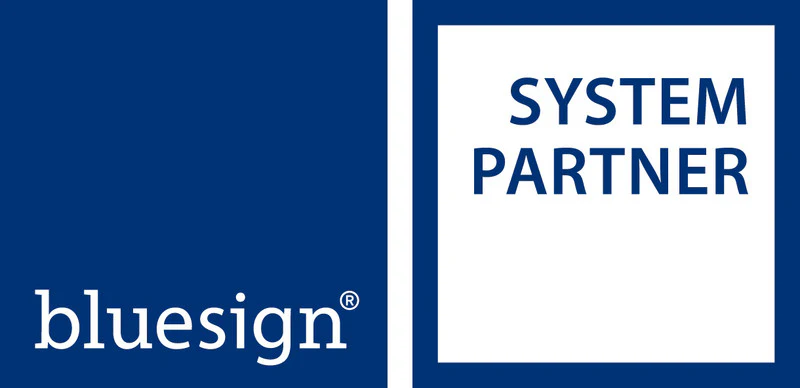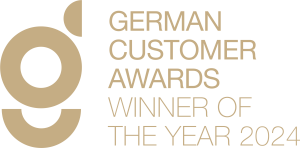New year, new luck. For 2023, we once again have some new sustainability-related projects planned. In 2022, we had to pause Innovator of the Year, due to corona, continued short-time working and the difficult conditions in the procurement market. So all the more impressive are the facts, figures and data for the premiere year. • 1,300,000 umbrellas • 8,000,000 litres of drinking water • 80,000 rucksacks • 100% climate-neutral
FARE and the waterSAVE umbrellas
Last year FARE, our expert for umbrellas of all kinds, developed a new process that massively reduces the consumption of natural resources, energy and pollution of the environment with harmful substances when the cover material of the umbrellas is dyed.
Every year, around 200 single-use plastic bottles are used per head. In Germany, this means 16.4 billion bottles and a total of 470,000 tonnes of plastic waste. FARE uses this as the raw material for the yarn used to make the umbrellas’ cover material. The recycling process has been tested to meet GRS Standard 4.0 and has been OEKO-TEX-certified.
With conventional yarn, the colouring process is also problematic. The process for dyeing it uses lots of energy in the form of heat and chemicals. In the waterSAVE procedure, the yarn is manufactured and dyed using a spinning process. This is possible entirely without the need to use energy in the form of heat, drinking water and chemicals.
Manufacturing the waterSAVE material therefore produces 98% less sludge compared with conventional materials. What’s more, 70% energy and 60% CO2 are also saved. Last but not least, each umbrella produced saves around six litres of water. To date, 1.3 million waterSAVE umbrellas have been produced, meaning that eight million litres of water have been saved.
However, development of the waterSAVE umbrellas is not enough for FARE. The company has teamed up with Viva con Agua for the waterSAVE Challenge, with the aim of promoting access to clean drinking water for more people. The scheme has provided soap for 21 schools in developing countries. 67 water filters and 45 hygiene workshops, plus 11 hygiene kits each for 20 families, were also part of the donation from the waterSAVE campaign, along with four apprenticeships to become a well technician and seven well hand pumps.
Mahlwerck and the Ford cups
When it comes to the subject of sustainability, we can barely imagine a life without reusable cups. The porcelain manufacturer Mahlwerck has developed its own ‘coffee to go’ reusable cup for the Ford company. This has been in use as standard since 2009, and has proven its worth millions of times. Mahlwerck has produced a tasteful alternative to disposable cups that can be reused virtually limitless times. This ‘coffee to go’ cup therefore makes a major contribution towards conserving resources and reducing environmental pollution. So far, around 1,500 cups have been produced for Ford’s German workforce, banishing an enormous number of paper cups from everyday life and preventing huge mountains of waste.
But why porcelain? Generally speaking, anything is good if it can be reused. But have you ever seen a pharmacist mixing their healing prescriptions in a plastic container? No, and there are lots of reasons for this. Porcelain and glass count among the hardest synthetic materials of all, and have been used for the storage and manufacture of food for thousands of years.
Deutsche Bahn and the ticket collector teddybear
The ticket collector bear is a real cult item in the DB world, and has been a figurehead for the DB shop for many years. As part of DB’s sustainability strategy, we have now completely redesigned it. Its design and form have been specially developed for Deutsche Bahn. The design is also registered. This small, cuddly bear represents a significant slice of history. Manufactured from recycled rPET bottles, with recycled paper used for the hangtags, it is a textbook example of 100% sustainability.
But that’s not all, because even the DB bear’s uniform isn’t just any old uniform. Rather, it is made from upcycled Deutsche Bahn company clothing that had been in use for decades. The old company clothing was handed to us, so we could sort it and clean it. Patterns were then cut from the available material, which a textiles company in Europe then assembled into mini-uniforms for the recycled teddybears. This small bear really has an admirable story behind it! These recycled uniforms have saved 317 kilograms of CO2 to date.
Jung and the Gleisdrops
From the oldest sweet factory to sustainable ideas factory. As a climate-neutral company, Jung is passionate about making a continuous contribution to environmental and climate protection, as well as to social projects. Whether through the development of innovative packaging solutions from biologically biodegradable materials, the use of certified products, engagement in social inclusion and donation campaigns, or through its use of e-mobility and 100% green electricity.
But Jung also gladly takes unusual approaches, such as by establishing the company’s own population of bees on the building’s roof, to help protect these plant pollinators that play such an important ecological role. The Innovator project: Jung takes the Gleisgold honey produced on Deutsche Bahn’s land and uses it for direct, sustainable production of honey sweets.
How? The honey is transported directly to the production site in a climate-neutral manner. There, it is processed to form honey sweets, and packaged in biologically degradable paper boxes. The paper boxes are made from kraft paper, with an all-around paper label and PLA inner coating. The entire product is 100% climate-neutral – starting from material procurement, spanning the entire production process and right up to transportation of the product. Jung offsets the CO2 emissions in the supply chain that cannot be completely avoided in selected climate protection projects. Sustainability really can taste this good!
A total of 650 kilograms of sweets have been produced – that really is a huge amount!
Xindao’s Aware rucksacks
Xindao’s rucksack is made from the sustainable Aware material. With Aware, you can be 100% sure that this really is sustainable material. Modern security standards ensure that each product has a digital fingerprint, from which the sustainability aspect is distinguishable. It is from precisely this material that Xindao has developed and produced an all-round practical and in both senses of the word secure rucksack for Deutsche Bahn’s employee welcome pack.
With its anti-theft feature and hidden pockets, including RFID protection, the product is not only stylish, but also secure and unbelievably practical. Both a laptop and tablet can be conveniently and above all safely transported in the rucksack. In the meantime, we have now produced more than 80,000 Aware rucksacks.
This year, Innovator of the Year will again be taking place. At the moment, companies can still apply separately. If you have a project idea and are still looking for a suitable industrial customer or would like further information, please feel free to contact us! We are excited about the next round and the new, cool, sustainable projects!

